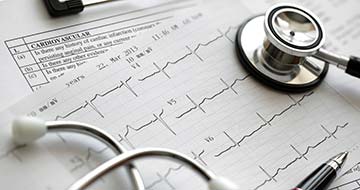Services
The first step in your care process is to understand the nature of your disease so that we can diagnose your condition.
Cardiac Electrophysiology, is the study of the electrical activities of the heart, specifically for the purposes of diag...
When our patients present with problems that may be cardiovascular in nature, we help determine the most likely diagnosi...
We help our patients improve blood flow in their arteries and veins by using very small tubes and specialized tools to d...
When the heart is functioning normally, the arteries are clear and open to allow for easy passage of blood through and o...
The highly trained surgeons and specialists at Biltmore diagnose and treat structural heart disease. We understand the n...
Atrial Fibrillation increases stroke risk by 5X
AFib is the most common type of heart rhythm condition. It feels like a fluttering or racing heart, or like your heart skips a beat. When the heart is in AFib, blood can become static and form a clot that can travel to the brain, causing a stroke. Thankfully, many people can manage AFib with medication, and keeping regular doctor appointments helps your doctor know when you may need a change in dosage or medication. Even with medication, you may have triggers that cause an episode:
- Infections or physical illness
- Emotional stress – positive or negative
- Hormones (in women)
- Interactions with over-the-counter medications
- Drinking too much alcohol
- Caffeine
- Dehydration
Five ways that you can maintain or improve your quality of life with AFib:
- Talk with your doctor about his or her opinion of your stroke risk.
- Take medicine as prescribed.
- Ask your doctor about what type of exercise is best for you – then do it.
- Eat a heart healthy diet that is low in fat and salt.
- Pay attention to and manage other health conditions such as sleep apnea, high blood pressure, high cholesterol and diabetes.
Know that you’re not alone. Finding support for your condition and staying connected with people in your life can help you keep a positive attitude and enjoy life.







